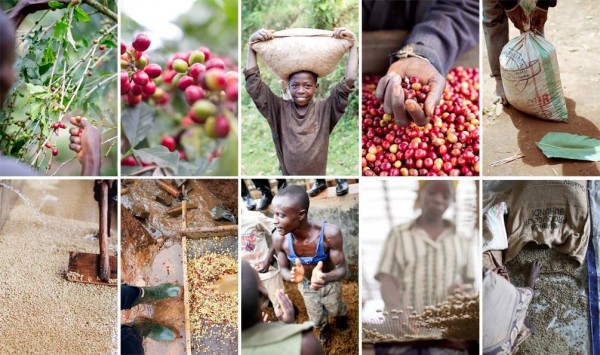
Long Miles Coffee Project Facebook photo.
Burundi is one of the poorest coffee-producing countries in the world, and this is by no means coincidental to a lack of development in the coffee sector.
UN experts in food security in 2013 estimated that coffee accounts for 80 percent of the country’s export earnings, and represents the primary financial means for more than half the population, or approximately 750,000 families, many of whom are smallholder farmers.
Coffee, as it is in Burundi, is not enough. “Around two thirds of Burundians live below the poverty line and up to 60% are chronically malnourished,” the UN said.
American expatriate Ben Carlson, who lives with his wife and sons in the landlocked East African country, sees Burundi’s underdevelopment as opportunity. His family is behind the Long Miles Coffee Project, which has been working over the past several years to help organize farmers and improve farming practices among individual smallholders, build washing stations and establish access to premium markets.
One of Long Miles’ partners stateside is Olympia, Wash.-based Olympia Coffee Roasting, which recently put together this fantastic video (below) about Long Miles and some of the issues facing Burundi smallholders. Unlike other promotional pieces of its kind, this video doesn’t sugarcoat the problems, including but not limited to historically poor land management and potato taste defect.
The video, like Long Miles itself, is very much focused on the correlation between problem and solution. In it, Long Miles founder Ben Carlson says:
What we’re seeing is, the problem is poor maintenance. That also means potential. The potential is, if these poorly maintained trees are producing beautiful coffee, what if we help these friends and neighbors of ours take care of their trees, get new trees, have better management. Take their environment around them and really make a sustainable and organic way to produce more and better coffee. So our challenge is really our opportunity.
Watch the full video:
Nick Brown
Nick Brown is the editor of Daily Coffee News by Roast Magazine.
Comment
1 Comment
Comments are closed.






Can I order some Burundi coffee from you? I lived in Burundi 6 years